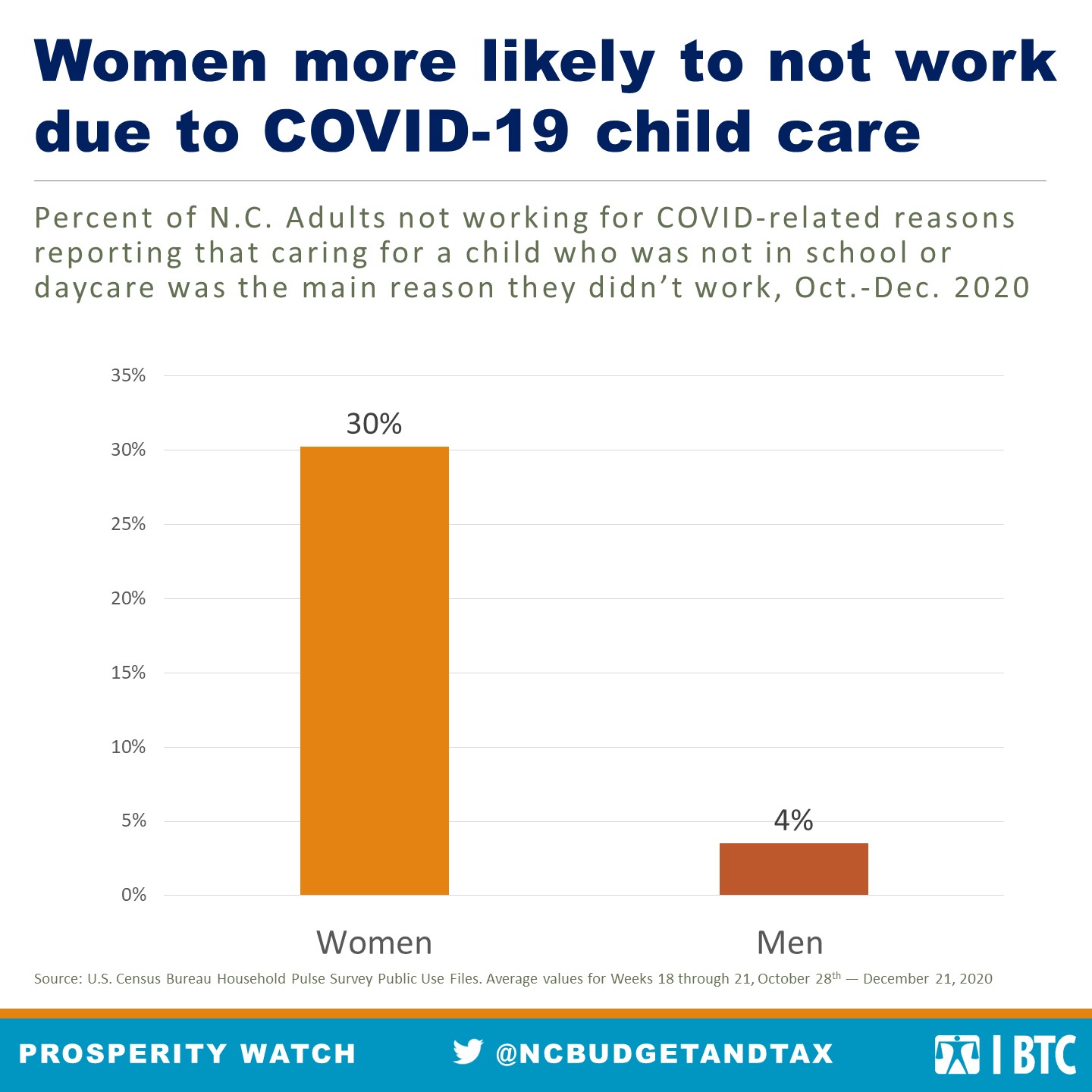The recession caused by the COVID-19 pandemic is notable for its disparate impact on men and women, and December 2020’s employment report made headlines when it showed that women accounted for all 140,000 job losses nationwide that month. Women in the United States have always contributed the majority of family caregiving responsibilities, even as they increasingly worked outside the home, and school and child care program closures over the past year have made it impossible for many women to continue working. Recent data from the U.S. Census Household Pulse Survey from October through December 2020 highlights the impact of child caregiving on women’s ability to work in North Carolina.
Among adults who hadn’t worked in the past 7 days for reasons related to the pandemic, it appears that caring for children who are not in school or child care was the number one reason that women weren’t working. Some 30 percent (+/- 6) of women who weren’t working because of the COVID-19 pandemic reported child care as the main reason, compared to just 4 percent (+/- 4) of men. (Because this survey data uses a relatively small sample size, these estimates should be used with caution.) This gender disparity in North Carolina reflects similar analysis done at the national level from April and May 2020. As with so many aspects of this pandemic, these numbers highlight the ways that the COVID-19 pandemic and recession have widened existing inequities. Our state’s child care system for example, already wasn’t working for too many families, especially mothers. These data indicate that economic recovery must take into consideration the disproportionate caregiving work that women do, which includes building a robust and equitable child-care system that’s accessible to all working families.
 Justice Circle
Justice Circle 